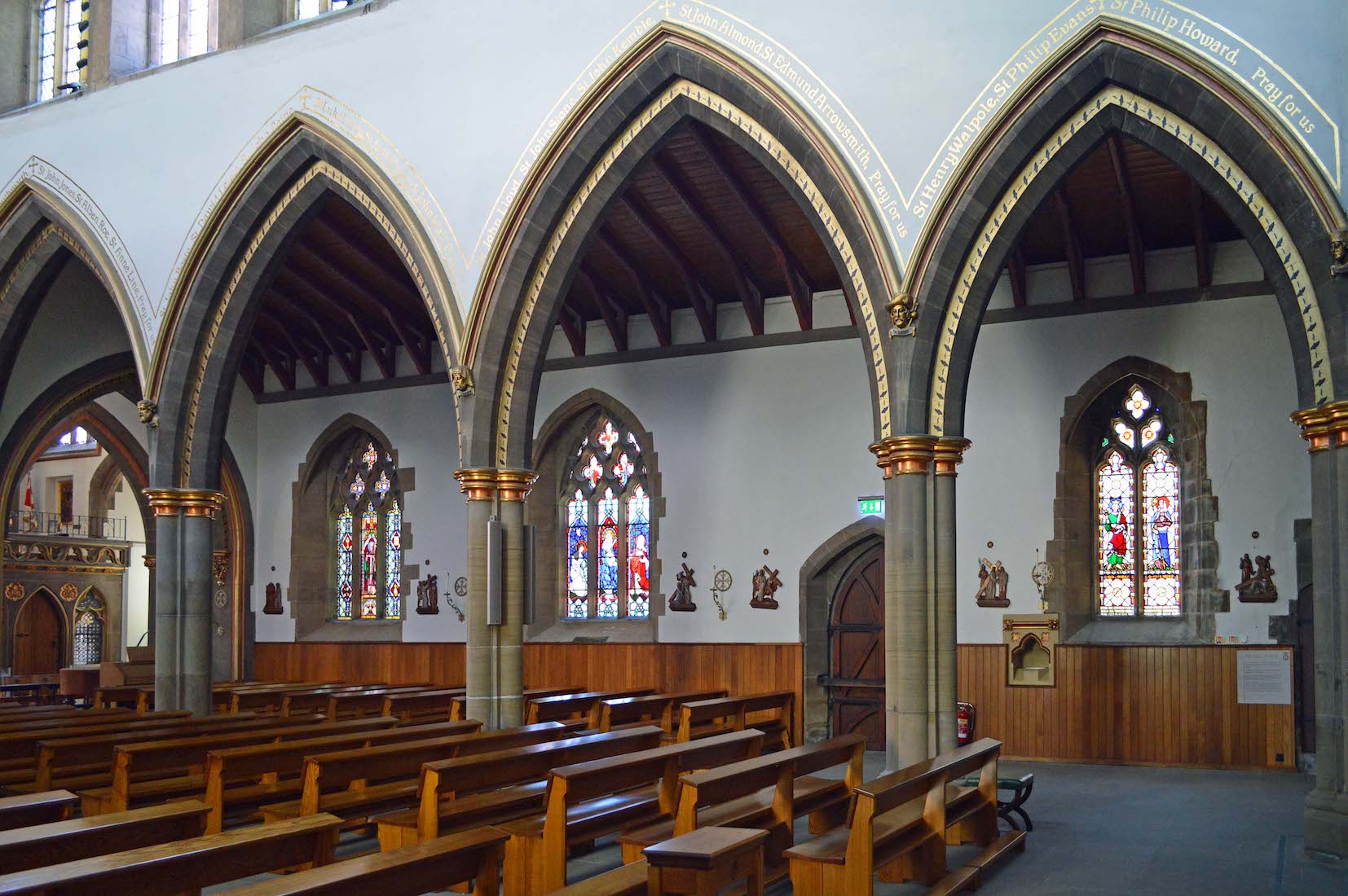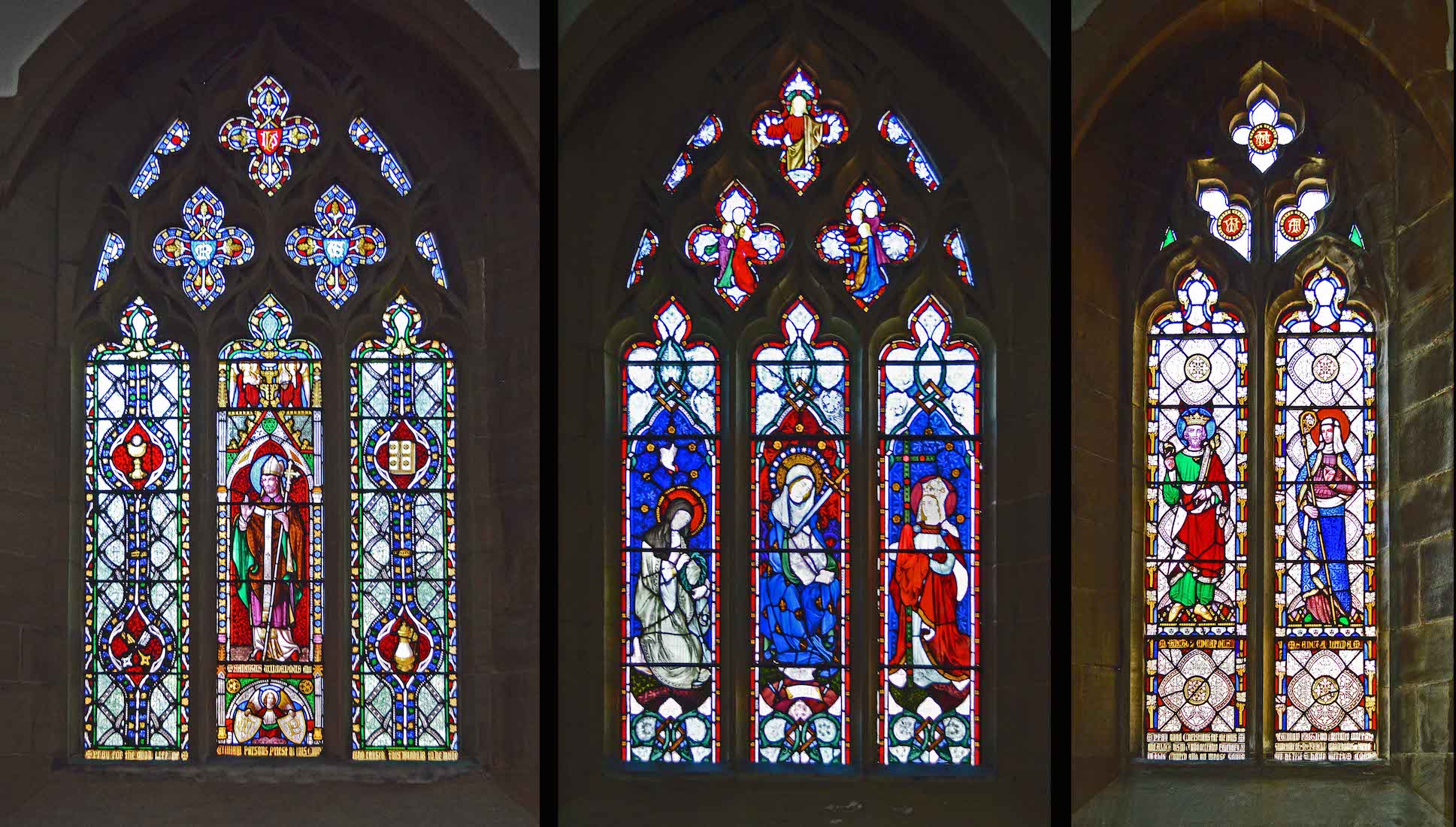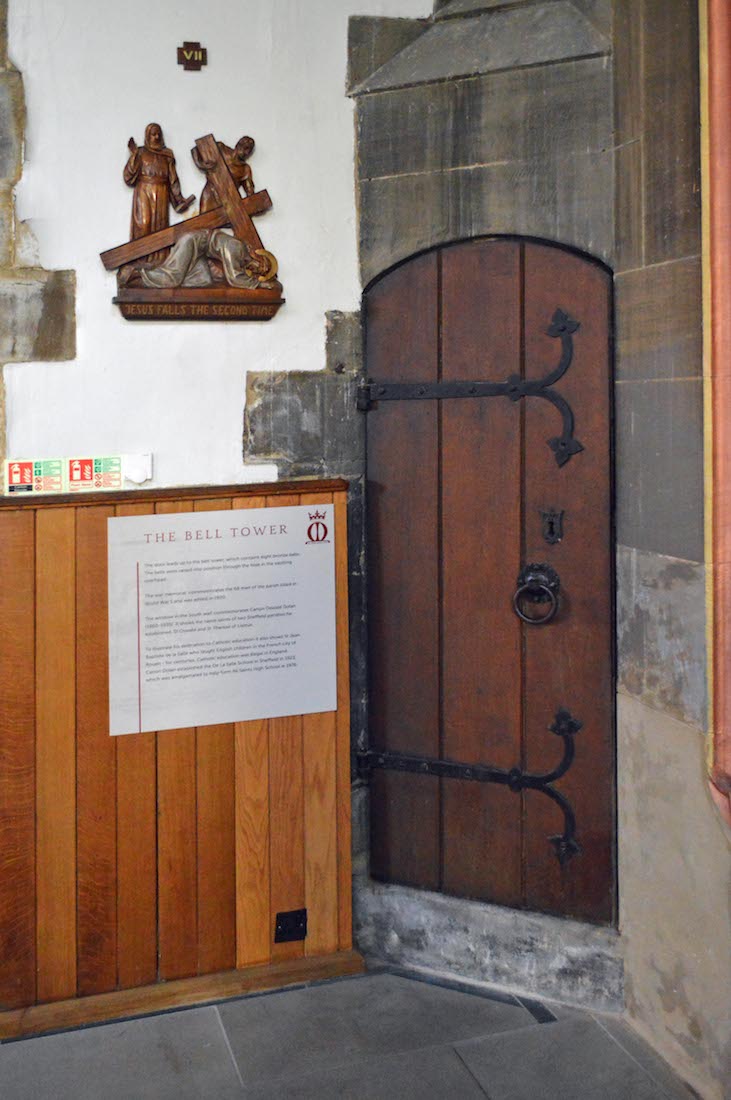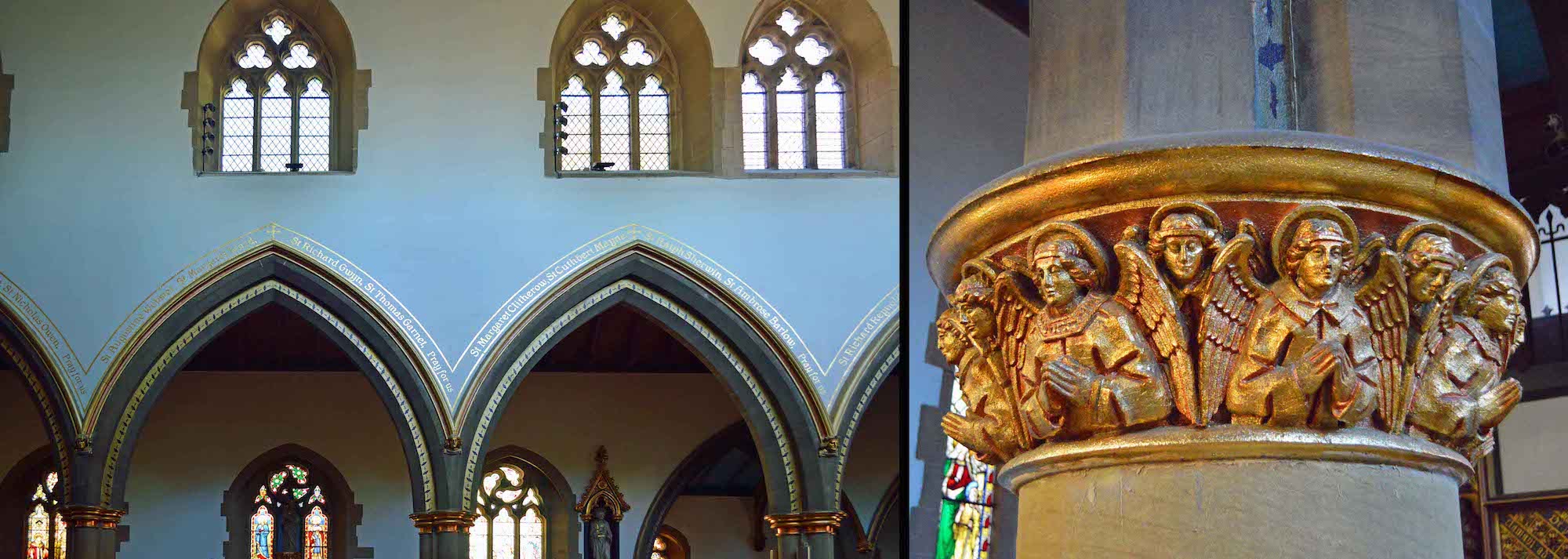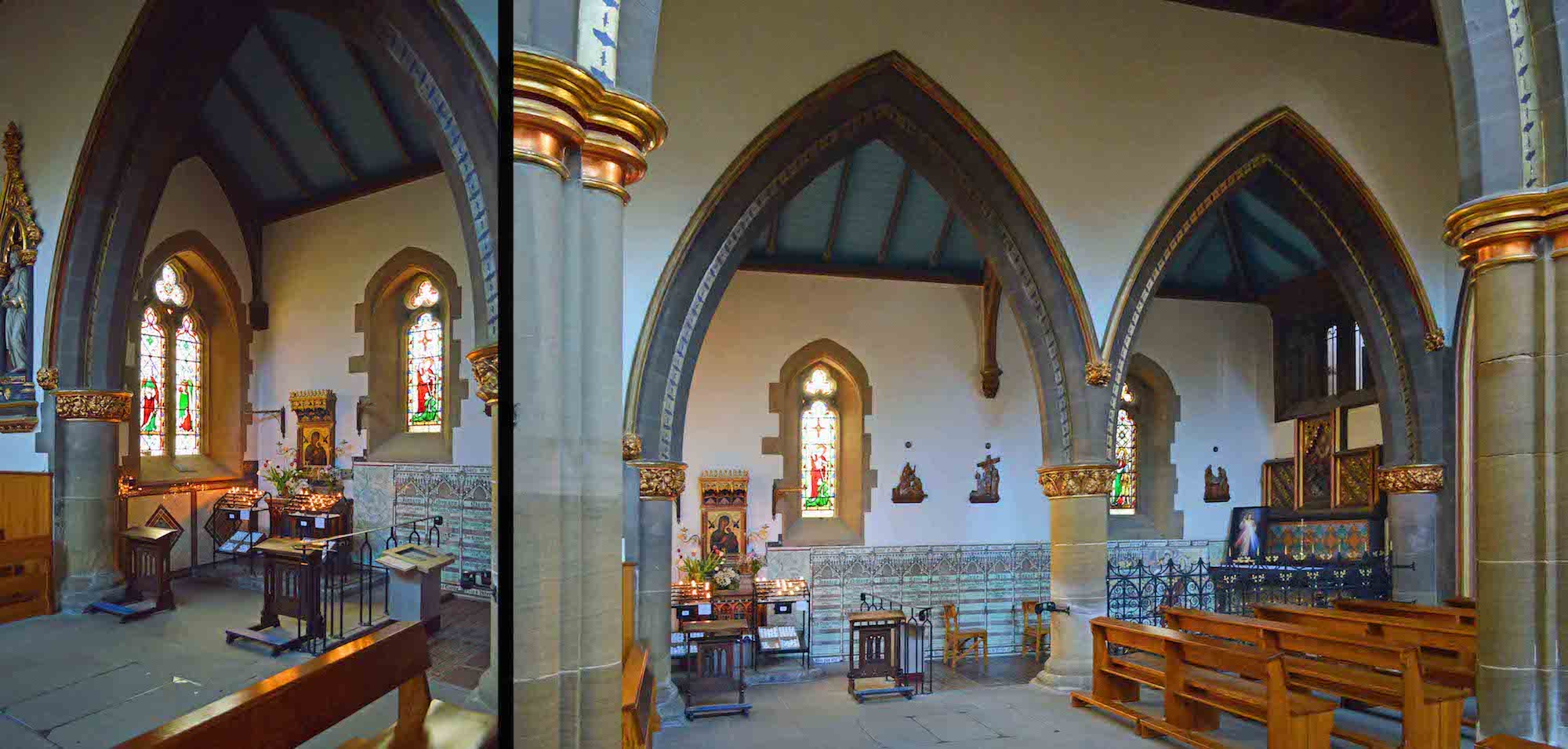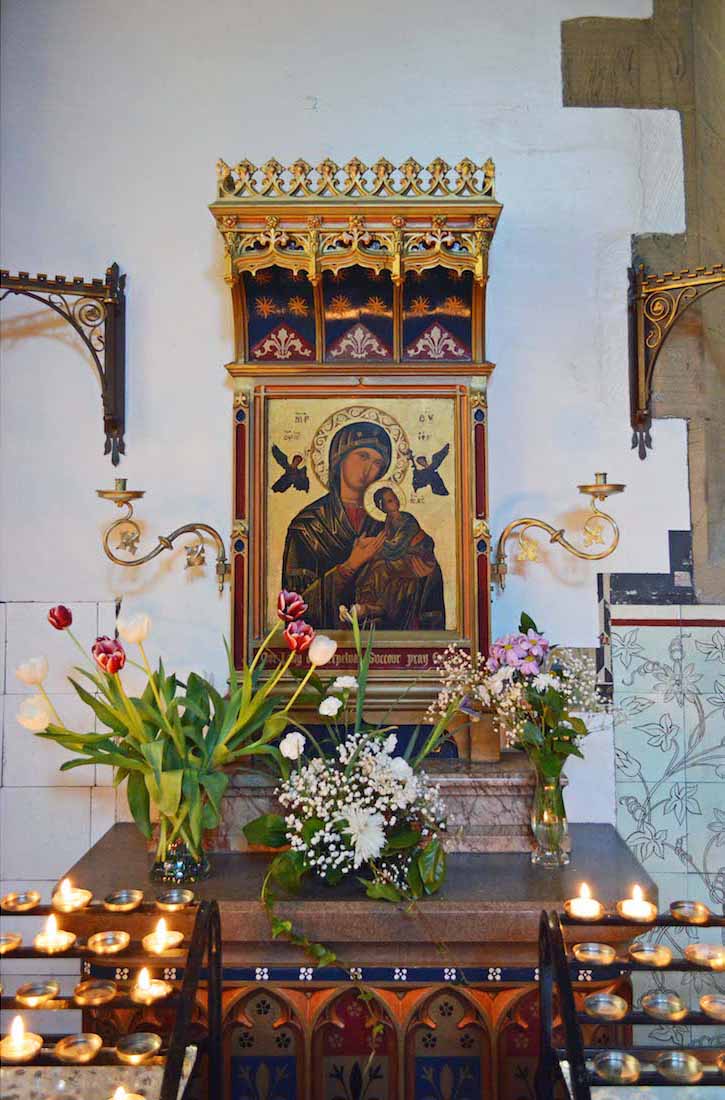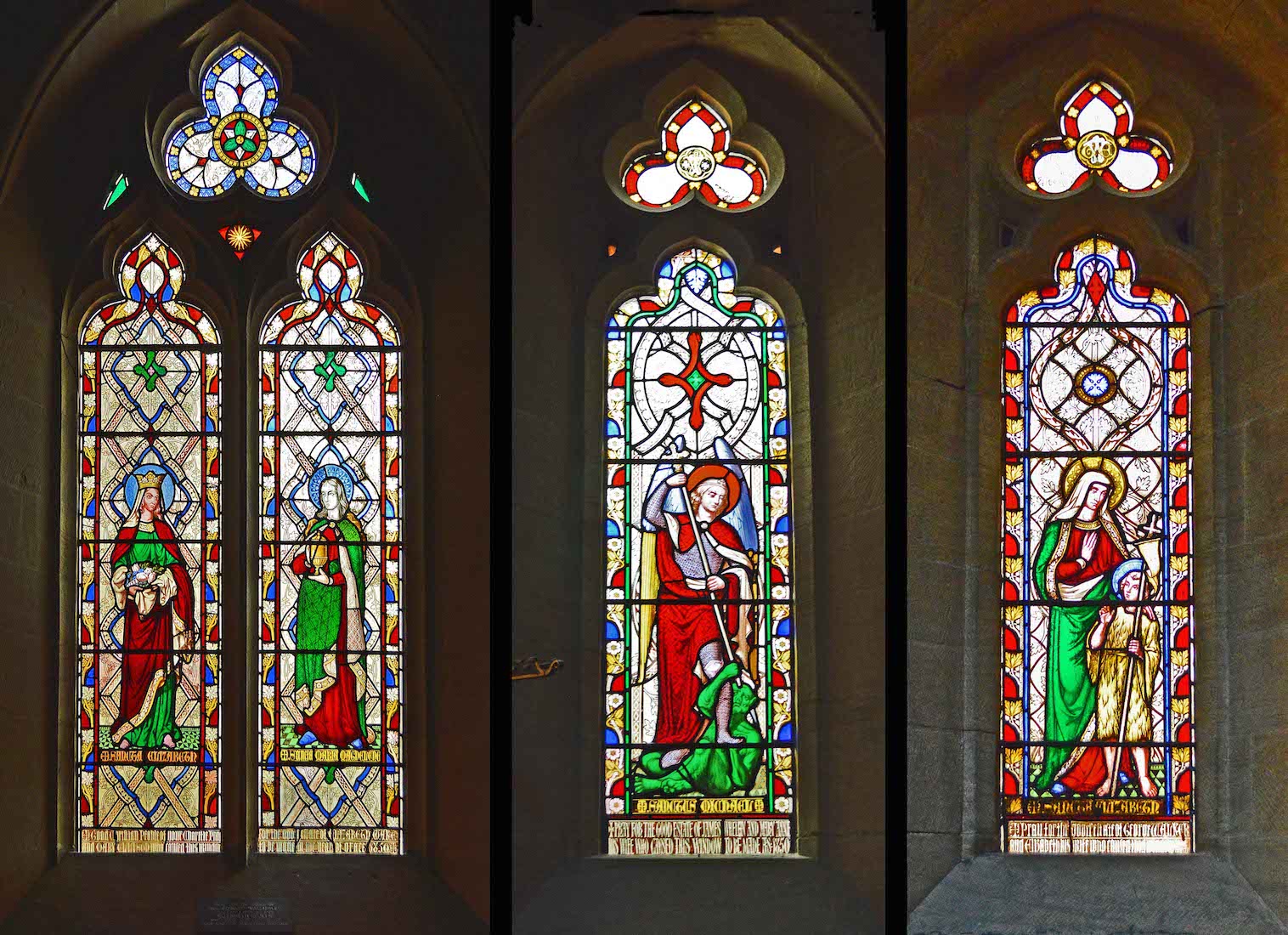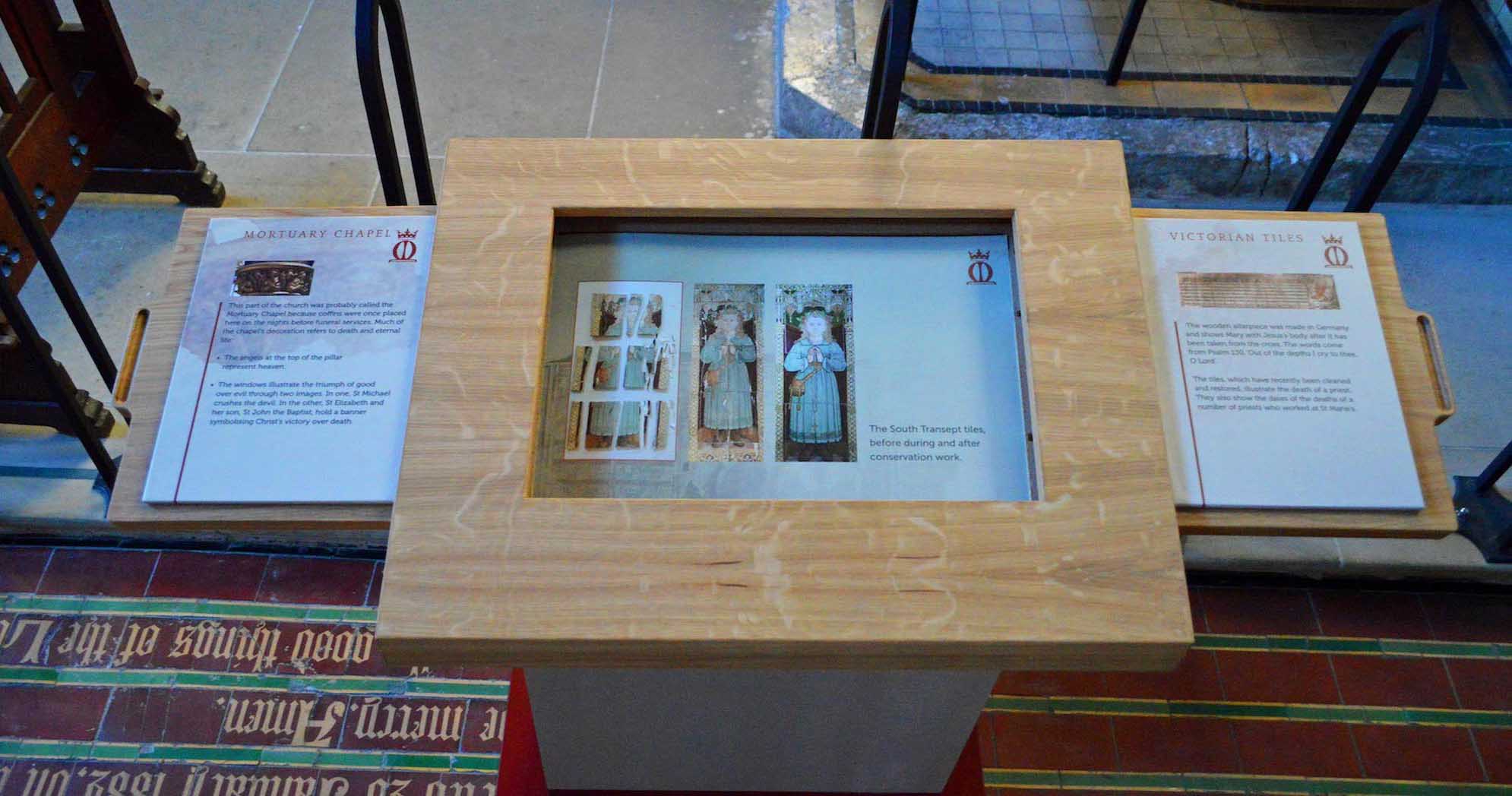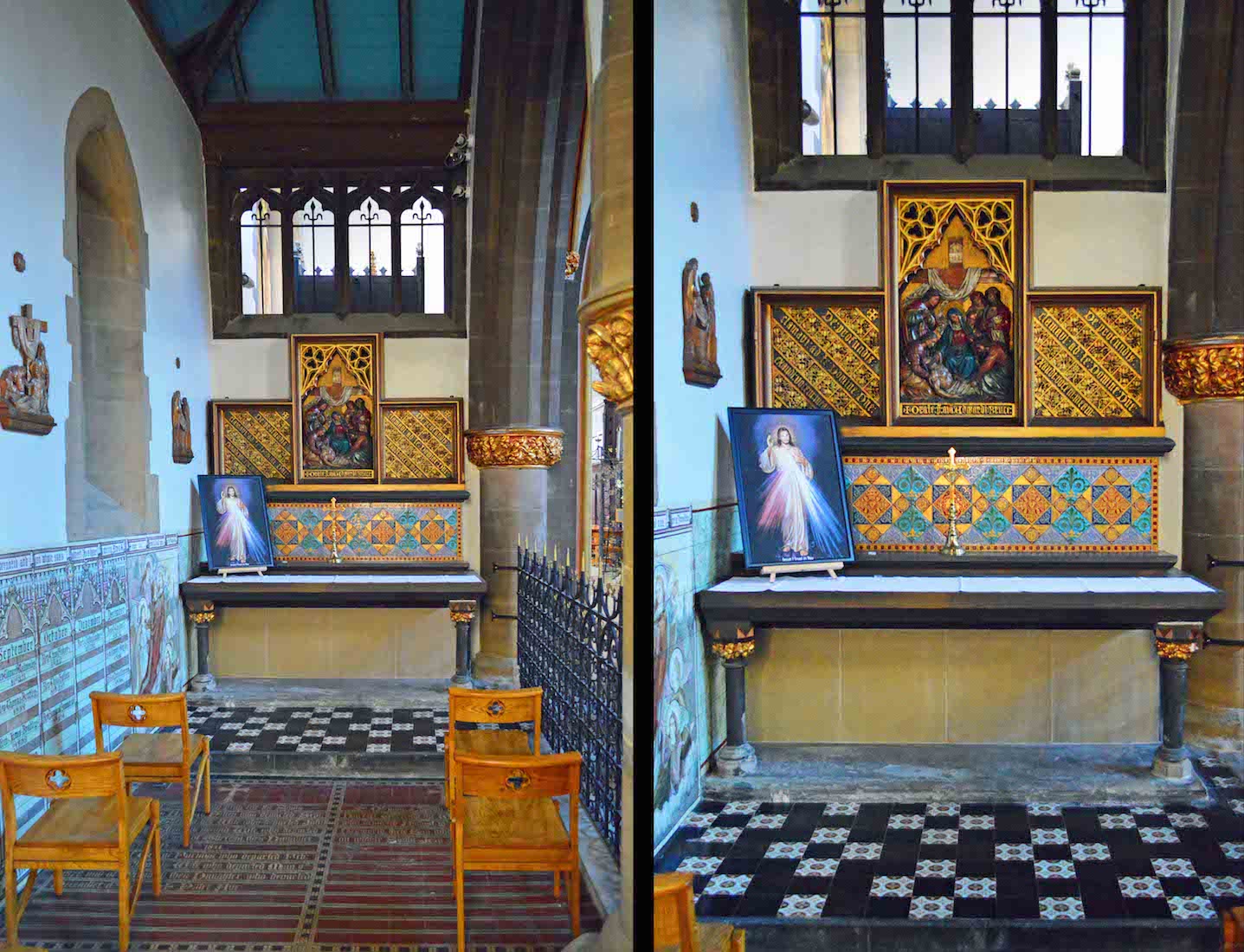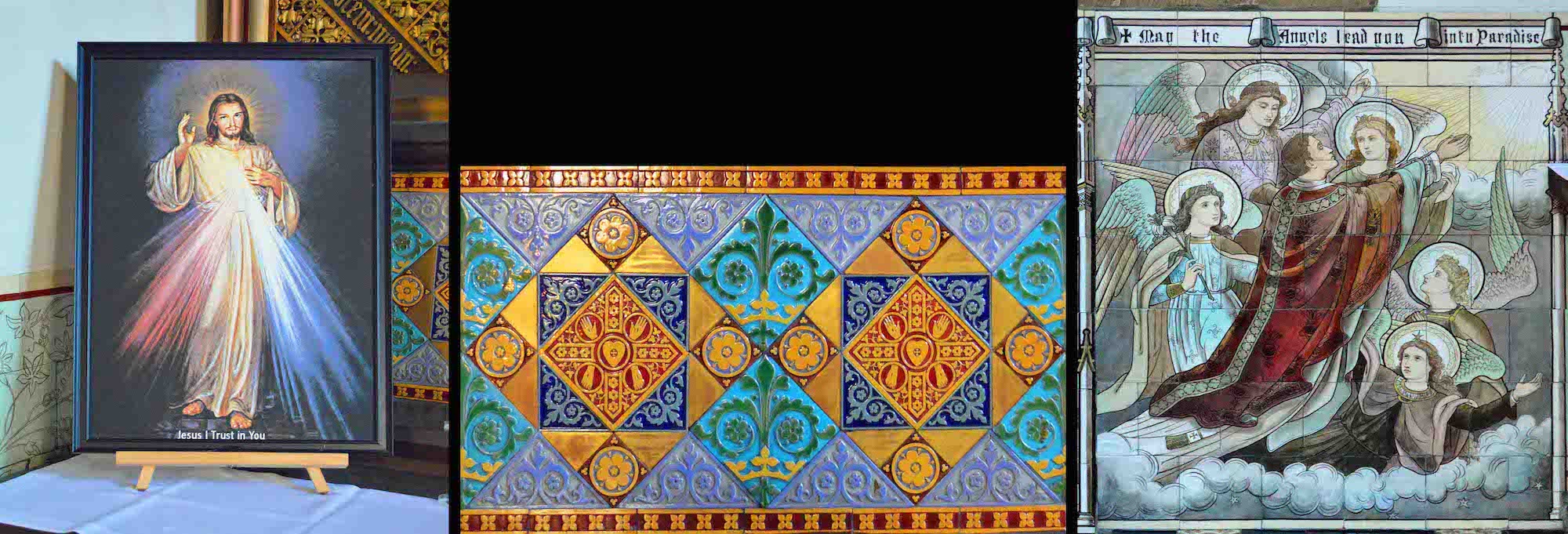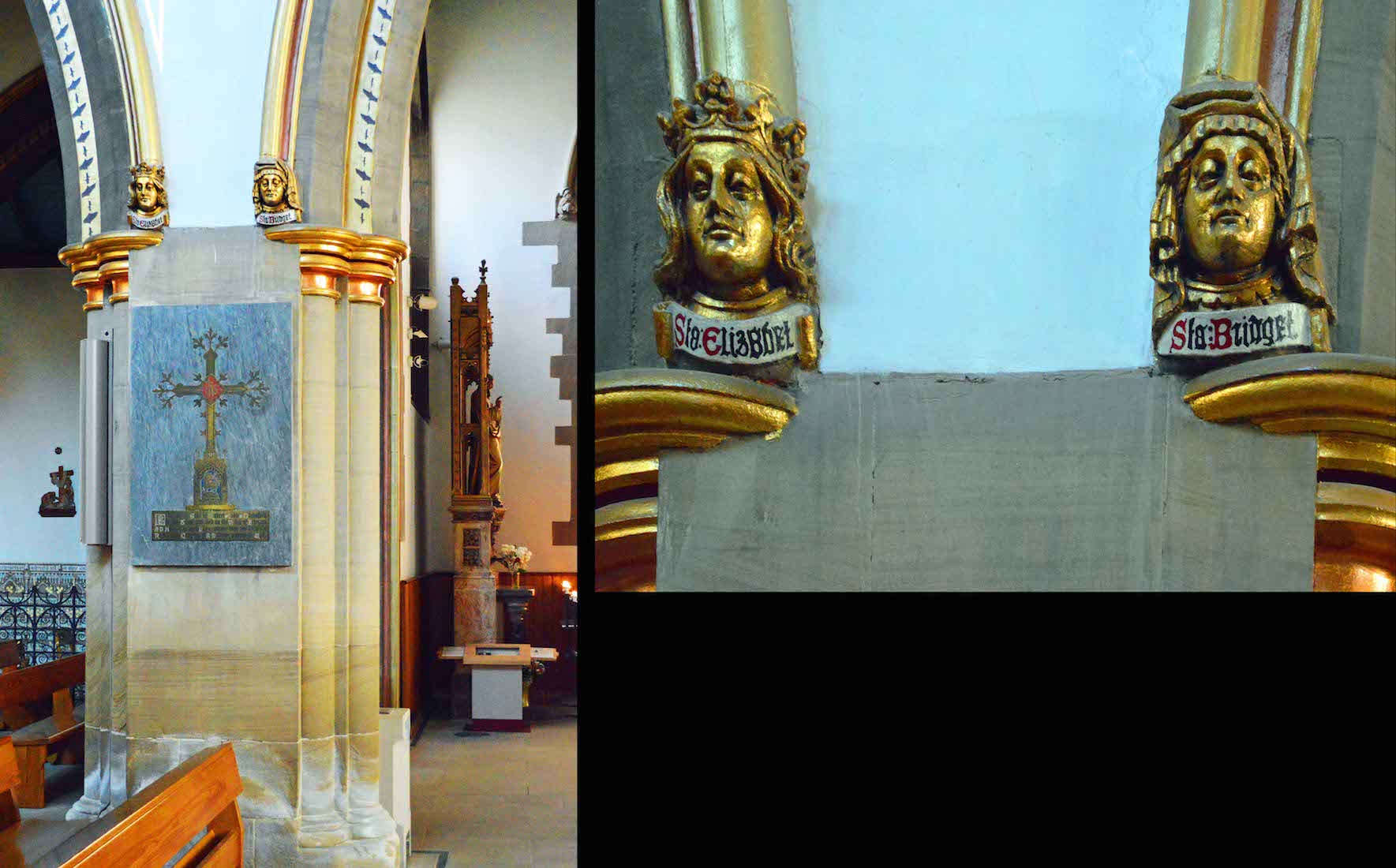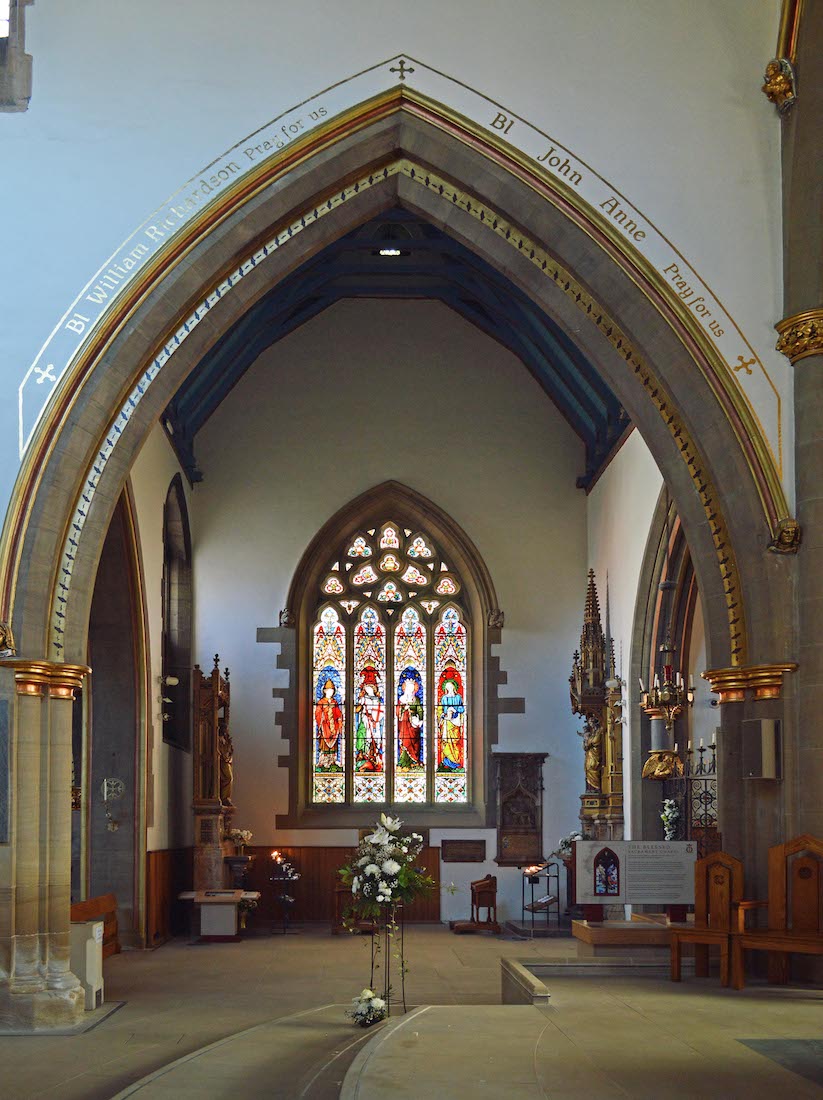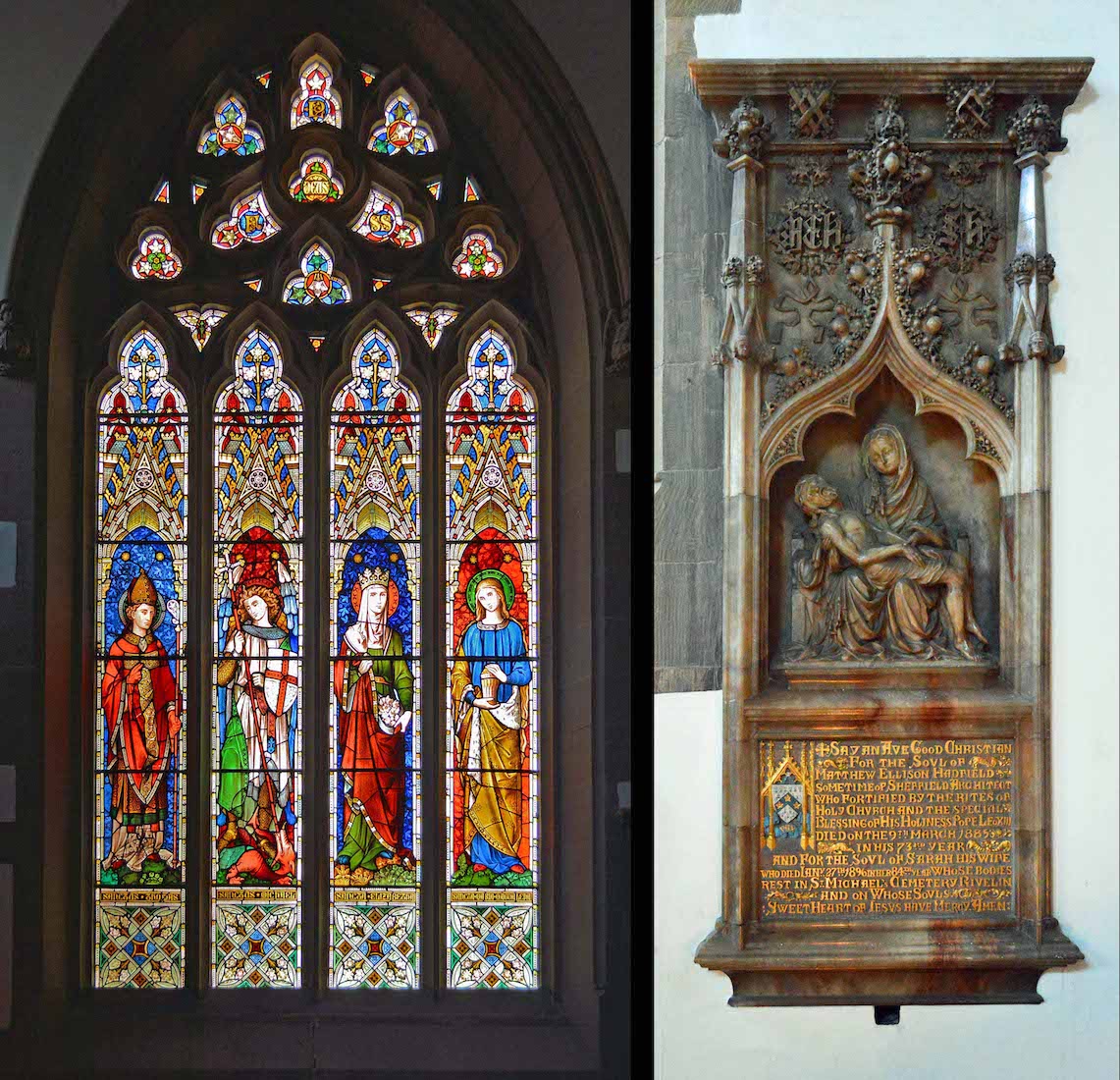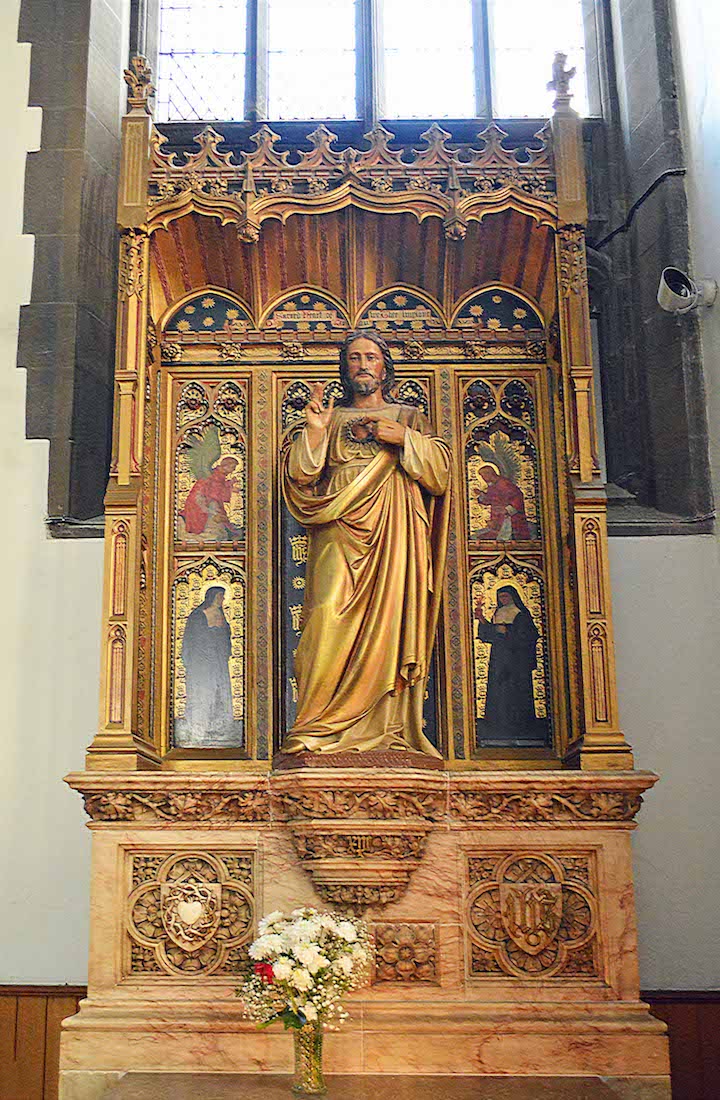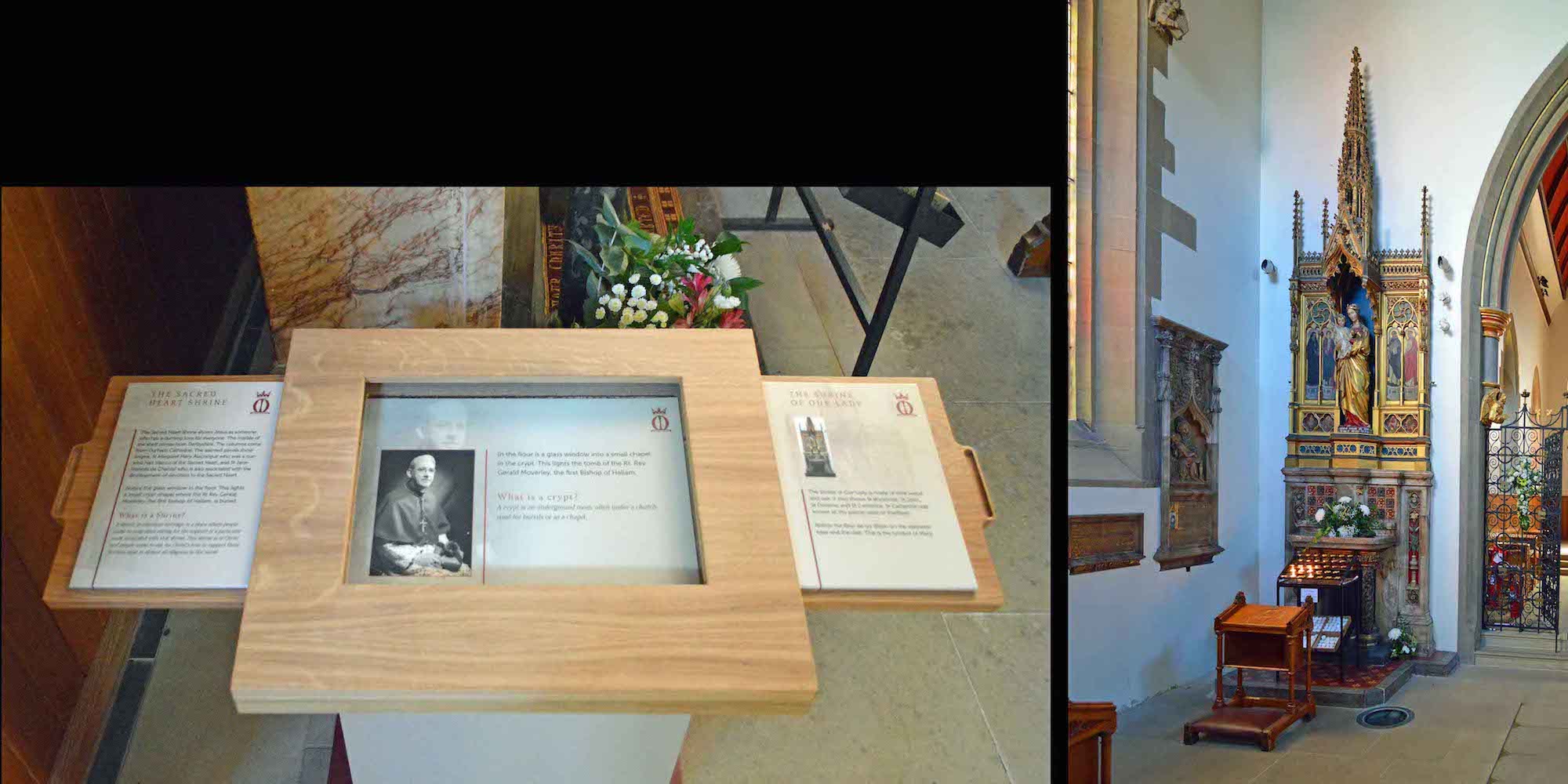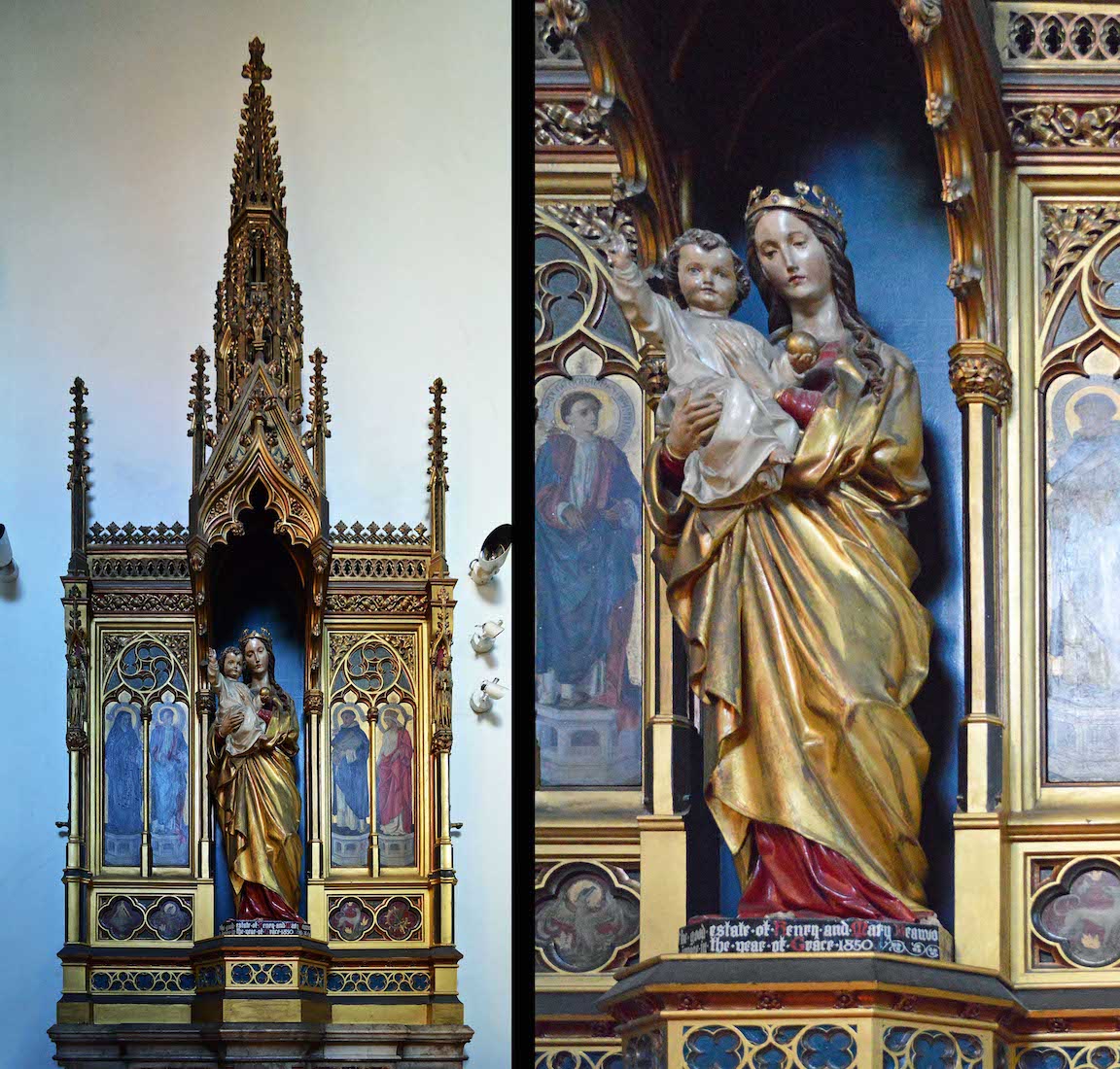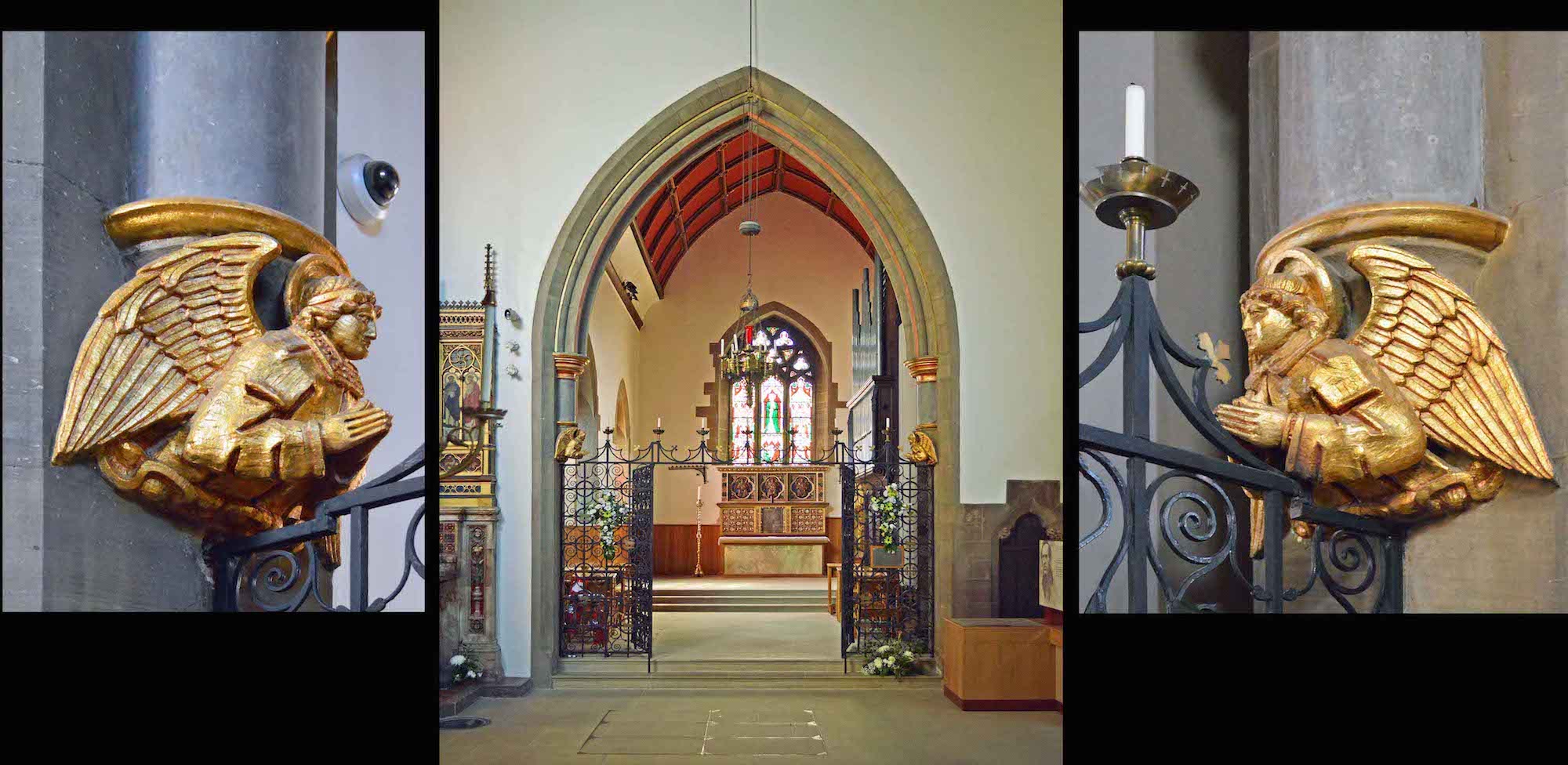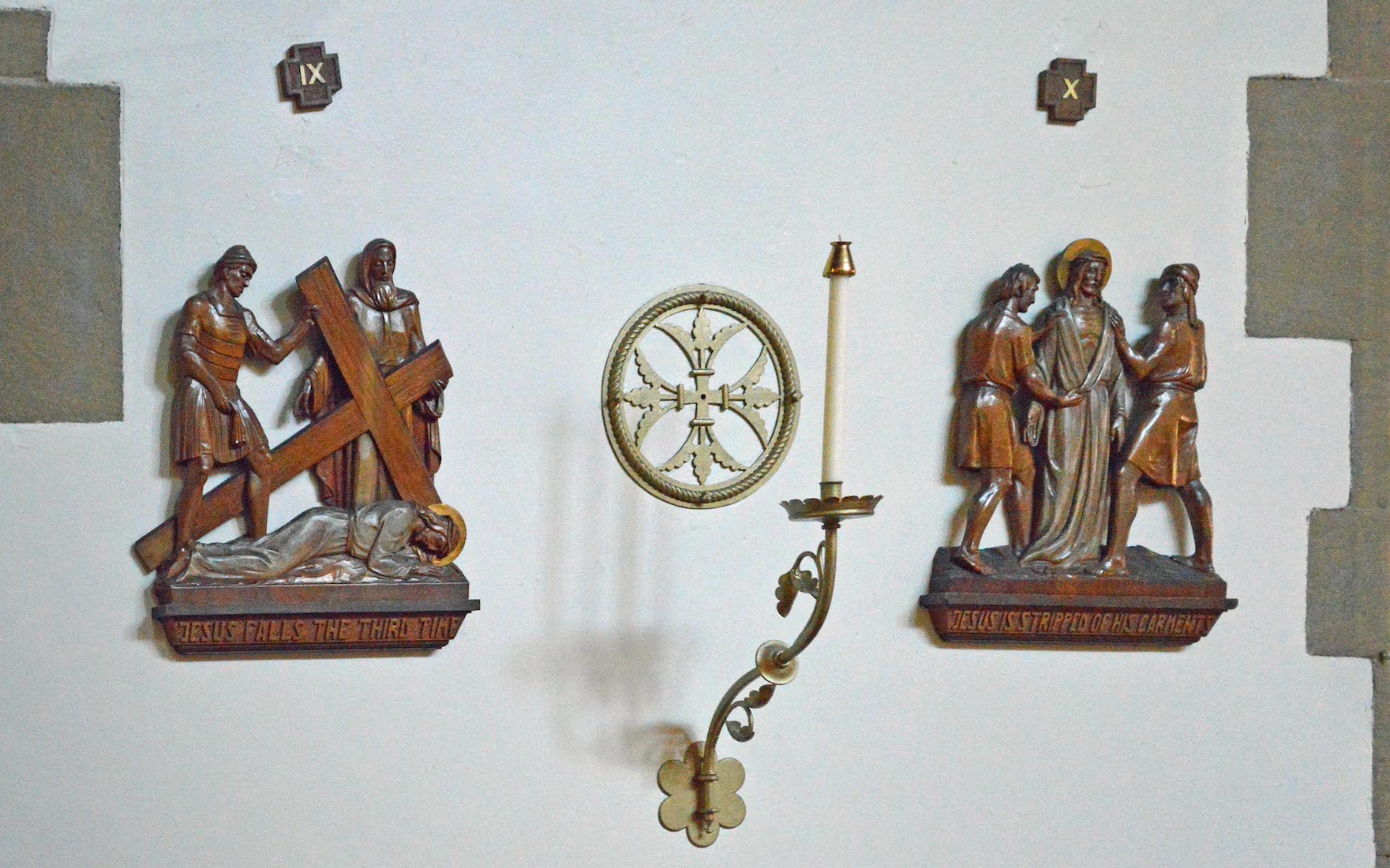
Stations IX and X show Jesus falling for the third time, and Jesus being stripped of his garments. The Stations are an aid to meditation, as they follow the journey of Jesus to the Cross. The central cross and candle marks a place where the walls were anointed during the dedication of the Cathedral. PLAN
22. NORTH NAVE WINDOW AND STATUE
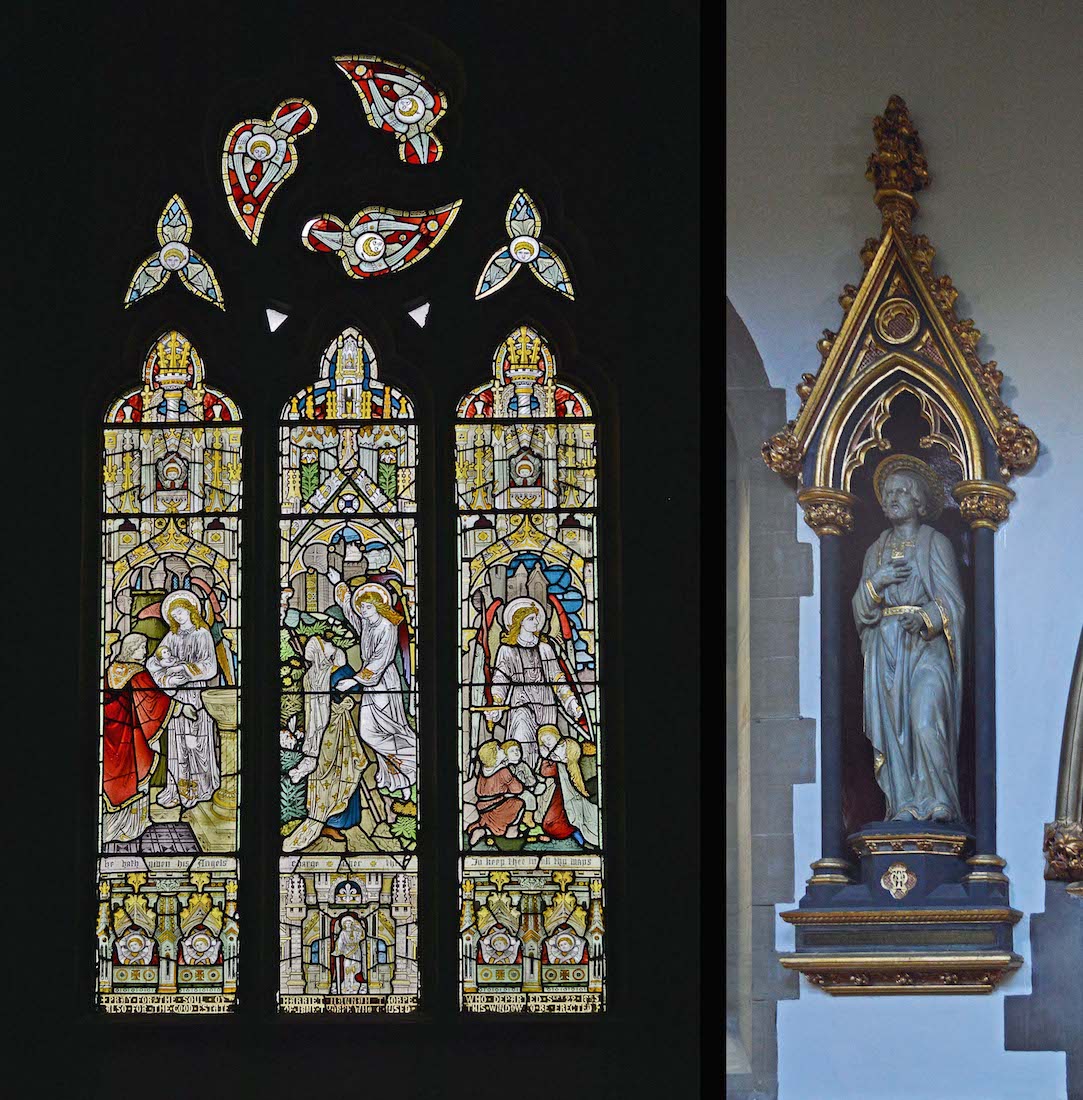
This window has scenes illustrating the verse: ‘He has given his angels charge over thee, to keep thee in all thy ways.’ (Psalm 91:11) The adjacent alcove contains an unidentified statue. .
23. SOUTH NAVE
Turning to the South nave, the wall is broken by the South door and three stained glass windows. In the spaces between are more Stations of the Cross. There is a gilded head at the top of each column.
24. SOUTH NAVE WINDOWS
These three windows show from left: • St William of York; • St Mary – Our Lady of Sorrows (‘A sword shall pierce your heart’ – Luke 2:35), flanked by St Theresa of Avilon and St Helen; • St (King) Edward the Confessor and St Hilda of Whitby.
25. STATIONS OF THE CROSS
Here we see Stations II – V of the Stations of the Cross. They are: • II Jesus receives his cross; • III Jesus falls the first time; • IV Jesus meets his mother; • V Simon of Cyrene helps Jesus.
26. DOOR TO THE BELL TOWER
At the West end of the South wall, a small wooden door leads up into the bell ringing chamber. From there the bell-ringers of both Sheffield universities regularly peal the eight bronze bells.
27. ARCHES AND COLUMNS
The pillars of the arcades have gilded capitals and there are requests to the saints to pray for us painted on the wall round the outside of the arches. In fact, the names which appear here are those of the Forty Martyrs of England and Wales, as well as two local martyrs, John Anne and William Richardson.
29. LADY OF PERPETUAL SUCCOUR
At the back of the Chapel is an icon of Our Lady of Perpetual Succour. This is a Roman Catholic title of the Blessed Virgin Mary as represented in a celebrated 15th-century Byzantine icon. It is often seen in Catholic cathedrals and churches.
30. MORTUARY CHAPEL WINDOWS
There are three stained glass windows in the Mortuary Chapel. The two-lancet window on the West wall shows St Elizabeth and St Mary Magdalene. Then there are two single lancet windows on the North wall showing the archangel St Michael crushing the devil (left), and St Elizabeth with her son John the Baptist (right).
31. CHAPEL DOCUMENTATION
Near the Lady of Perpetual Succour icon at the rear of the Chapel is this display of information about the Chapel windows and altar, and also about the tiles in the South transept.
32. CHAPEL ALTAR
The colourful altar piece shows Mary receiving the dead body of Christ. The words around recall the Psalm 130: ‘Out of the depths I have cried unto thee’..
33. CHAPEL ITEMS
At left is the picture ‘Divine Mercy’ which stands on the altar. This image is a depiction of Jesus based on the devotion initiated by Saint Faustina Kowalska. The central image shows the decorative tiling behind the altar. At right is shown the tile painting on the North wall: ‘May the angels lead you to Paradise’, said to depict the death of a priest.
34. CROSS MEMORIAL AND SAINTS
On the Northwest crossing column in line with the division between the mortuary chapel and the North transept is a plaque with a cross in memory of Robert John Gillesford(?). Above are a further two gilded heads – St Elizabeth and St Bridget. On the right of the memorial we get a glimpse into the North transept, which is where we go next.
35. NORTH TRANSEPT
We now stand in the crossing and look across to the North transept. The colourful stained glass window is before us. On either side is a large monument or shrine. Nearer to us, on either side is an arch: the arch on the left leads through to the North nave; the arch on the right to the Blessed Sacrament Chapel.
36. NORTH TRANSEPT WINDOW AND PIETÀ
The North transept window has four lancets, each one depicting a saint. From left we have: St Thomas, St Michael, St Elizabeth and St Mary Magdalene. To the right of the window is a memorial to Cathedral architect Matthew Ellison Hadfield who died in 1885, and his wife Sarah who died in 1896. It features a Pietà..
37. WEST MONUMENT IN TRANSEPT
The monument in the West corner of the transept is the Shrine of the Sacred Heart, representing the burning love Christ has for all. The text at the top reads ‘Sacred Heart of Jesus we Thee implore’. Alongside the central figure are two angels and two nuns.
38. SHRINE OF OUR LADY
The monument in the Eastern corner of the transept is the Shrine of Our Lady. We visit this shortly, but for now notice the small window in the floor near the base. This lights the tomb of the first Bishop of Hallum, the Right Reverend Gerald Moverley. When he died in 1996, he had been a priest for 50 years and a bishop for almost 29 years.
39. SHRINE DETAILS
The Shrine of Our Lady is 6.7 metres high. The statue is of carved limewood. Saints John, Dominic, Catherine and Winifred are included in the design, along with Mary’s emblems of fleurs de lys and lilies.
40. TO THE BLESSED SACRAMENT CHAPEL
Just beyond the Shrine is the Chapel of the Blessed Sacrament with its grilled doors, kept for private prayer. A golden angel keeps watch on either side of the entrance.


